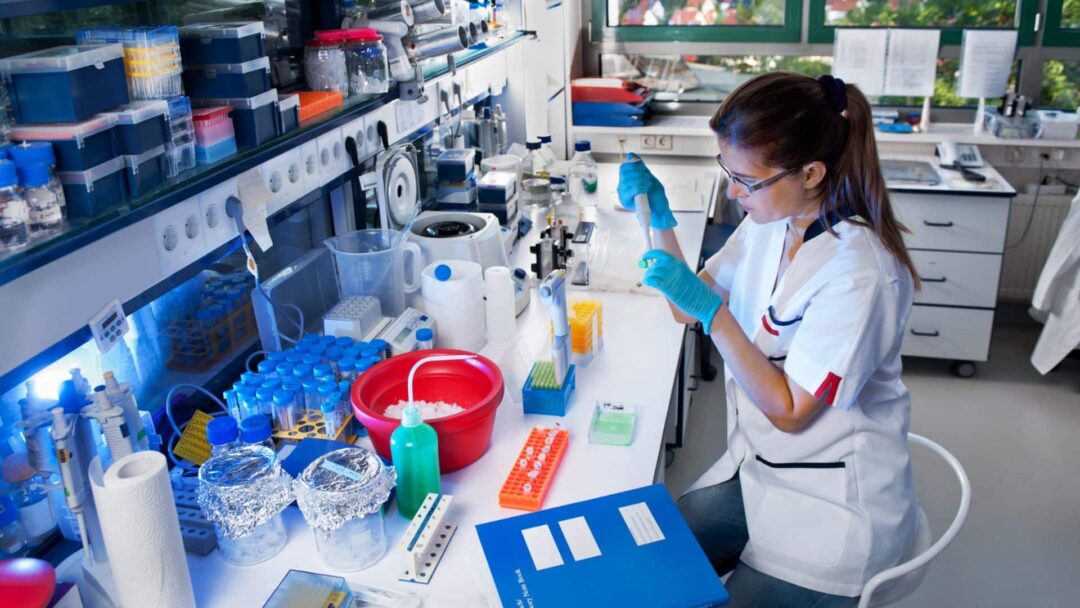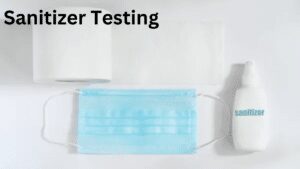
In the wake of the COVID-19 pandemic, hand sanitizers have become an essential part of daily life, playing a crucial role in maintaining public health and hygiene. However, the effectiveness of a hand sanitizer is not just about its alcohol content; it also involves ensuring that the product meets stringent safety and efficacy standards. This is where sanitizer testing labs come into play. These labs are responsible for evaluating the quality, safety, and effectiveness of sanitizers through a series of rigorous procedures. In this blog, we will explore the key procedures carried out in a Sanitizer Testing Lab and why they are vital for public safety.

Alcohol Content Verification
One of the most critical procedures in a sanitizer testing lab is the verification of alcohol content. The effectiveness of a hand sanitizer largely depends on its alcohol concentration, which needs to be within a specific range to effectively kill germs and viruses. Testing should be following United States Pharmacopeia (USP), Federal Chemical Codex (FCC) and other national regulatory guidelines including GSO, SASO .
Sanitizer testing labs use advanced analytical techniques, such as gas chromatography, to accurately measure the alcohol content in sanitizer formulations. This verification ensures that the product meets the required standards and is capable of providing the necessary protection against pathogens by verifying the percentage of ethanol, methanol, n-propanol and iso-propanol.
Microbial Efficacy Testing
Microbial efficacy testing is another crucial procedure in a sanitizer testing lab. This process evaluates the sanitizer’s ability to eliminate a wide range of microorganisms, including bacteria, viruses, and fungi. The goal is to ensure that the sanitizer not only contains the right ingredients but is also effective in real-world conditions.
During microbial efficacy testing, the sanitizer is exposed to various strains of microorganisms in a controlled environment. The lab then measures the reduction in the number of viable microorganisms after exposure to the sanitizer.
Skin Irritation and Sensitization Testing
While hand sanitizers are essential for hygiene, they are also in direct contact with the skin, making it important to ensure they do not cause irritation or allergic reactions. Sanitizer testing labs conduct skin irritation and sensitization testing to evaluate the product’s safety for regular use.
In these tests, the sanitizer is applied to skin models or human volunteers under controlled conditions. The lab monitors any signs of irritation, redness, or allergic reactions over a specified period. If the sanitizer causes significant skin irritation or sensitization, it may require reformulation to make it safer for consumers.
Stability and Shelf Life Testing
Stability testing is essential for determining the shelf life of a hand sanitizer. Sanitizer testing labs evaluate how the product’s formulation holds up over time when exposed to various environmental conditions, such as temperature changes, light exposure, and humidity.
During stability testing, the sanitizer is stored under different conditions for an extended period, and its physical and chemical properties are periodically tested. The lab assesses whether the sanitizer maintains its alcohol content, effectiveness, and safety throughout its intended shelf life.

Conclusion
Sanitizer testing labs play an essential role in ensuring the safety, effectiveness, and quality of hand sanitizers. Through a series of rigorous procedures, including alcohol content verification, microbial efficacy testing, skin irritation testing, stability testing, residue testing, and toxicology assessments, these labs provide the necessary validation that a hand sanitizer can deliver on its promises. As hand sanitizers continue to be a crucial tool in maintaining public health, the work of sanitizer testing labs is more important than ever. For manufacturers, investing in thorough testing not only ensures compliance with regulatory standards but also builds consumer trust and confidence in their products.






No comment yet, add your voice below!